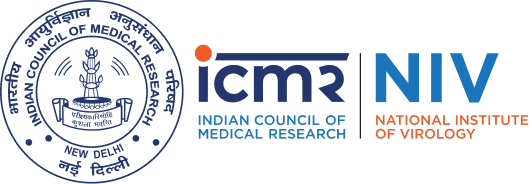The National Institute of Virology (NIV) is one of India’s foremost research institutions dedicated to the study of viruses and viral diseases. Operating under the Indian Council of Medical Research (ICMR), NIV is headquartered in Pune, Maharashtra, and plays a vital role in the country’s efforts to monitor, diagnose, and control viral infections. Established in 1952, the institute has grown over the decades to become a leader in virology research, with a strong focus on emerging and re-emerging viral threats.
NIV’s origins trace back to its inception as the Virus Research Centre (VRC), which later transformed into an independent institute specializing in virology. Since then, it has been at the forefront of India’s response to viral outbreaks, providing critical research and diagnostic support during health crises. The institute has contributed significantly to the understanding of various viruses, including Nipah virus, Dengue, Chikungunya, Zika, and Influenza, among others. Its work is essential in preventing and managing infectious diseases, which pose a continuous threat to public health.
One of the primary roles of the National Institute of Virology is conducting advanced research into virus biology, transmission, and mutation patterns. Researchers at NIV isolate and characterize viruses, helping to identify their genetic makeup and behavior. This research forms the basis for developing diagnostic tools, treatments, and vaccines. The institute is also a key player in the epidemiological study of viral diseases, helping to track infection patterns and assess risks to populations.
NIV operates some of the country’s highest containment laboratories, including Biosafety Level 3 (BSL-3) and Biosafety Level 4 (BSL-4) facilities. These high-security labs enable scientists to safely study highly infectious and dangerous viruses that require stringent containment measures. The availability of such facilities is critical for research on pathogens that can cause severe outbreaks, allowing researchers to work without risking public health.
Besides research and diagnostics, the National Institute of Virology offers training programs to virologists, clinicians, and laboratory personnel from across India. These programs are designed to improve skills in virus detection, laboratory safety, and outbreak response. Through training, NIV strengthens the country’s capacity to handle viral diseases and ensures that health workers are well-prepared for emergencies.
During viral outbreaks, NIV acts as a referral laboratory and technical advisor to state and central health authorities. The institute’s expertise is crucial for rapid virus detection and confirmation, which helps initiate timely control measures. For example, during the Nipah virus outbreaks in Kerala and the H1N1 influenza pandemics, NIV provided diagnostic services, supported contact tracing, and helped devise containment strategies. More recently, the institute played an essential role during the COVID-19 pandemic by developing testing protocols and supporting the national response.
The National Institute of Virology also contributes to vaccine development and antiviral research. By studying viruses at the molecular level, researchers at NIV help identify targets for vaccines and treatments. These efforts are vital for creating effective measures to prevent infections and reduce mortality from viral diseases.
Collaborations form another important aspect of NIV’s work. The institute works closely with international organizations such as the World Health Organization (WHO) and partners with other research bodies to share knowledge and coordinate responses to global health threats. These partnerships help ensure that India remains connected to the global scientific community and can respond effectively to emerging viral diseases.
NIV’s role in public health goes beyond research and diagnostics. It provides essential data that informs government policies and public health strategies. By monitoring viral diseases and conducting surveillance, the institute helps identify outbreaks early and recommend measures to prevent their spread. Its work supports initiatives such as contact tracing, quarantine guidelines, and community awareness campaigns.
The National Institute of Virology has a strong legacy of scientific excellence and public service. Its continued work in virology research, diagnostics, training, and outbreak response strengthens India’s ability to manage viral diseases. With the ongoing risk of new and re-emerging viruses, NIV’s contributions remain critical to protecting public health and saving lives across the country.







